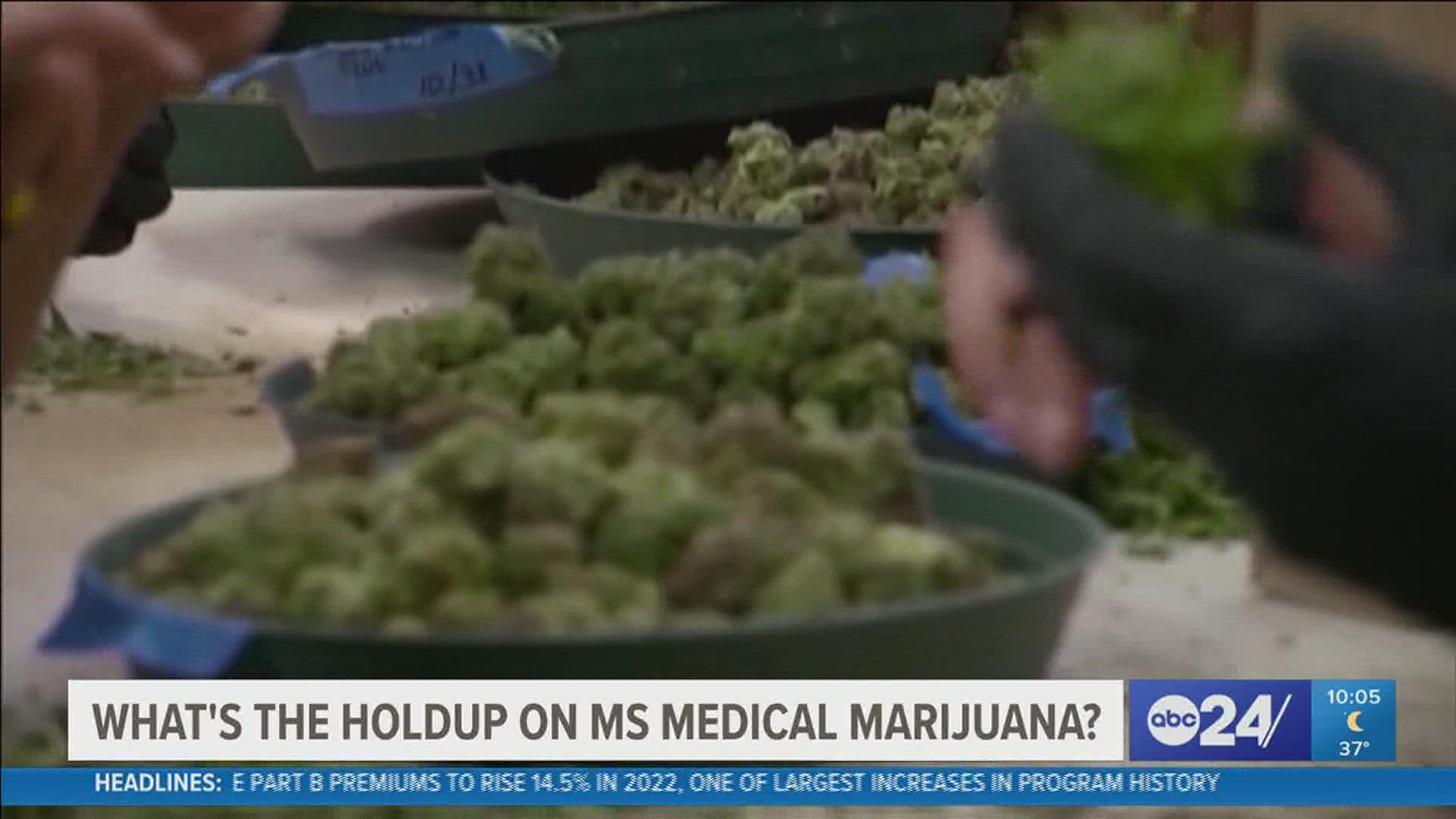MISSISSIPPI, USA — It’s been about six months since legislators agreed on a draft bill to start a medical marijuana program in Mississippi, and Gov. Tate Reeves has yet to approve a special session.
Reeves and state lawmakers are at odds over provisions in the bill.
Earlier this week, Reeves said he hasn't given the bill the green light because he believes that the amount of marijuana the bill allows patients to have is too high.
Last November, lawmakers drafted Initiative 65, where patients would have been able to purchase up to 5 ounces of marijuana a month and 74% of Mississippians voted yes on the bill last year. However, the Mississippi Supreme Court killed Initiative 65 in May because it didn't comply with the signature distribution requirements in the Mississippi constitution.
Since then, the Senate has created a new medical marijuana bill. Mississippi State Sen. Kevin Blackwell said it addressed all of Reeves's concerns, including reducing the dosage from 5 ounces to 4 ounces a month, allowing patients to get 8 units a week.
Reeves still think 4 ounces is too high and wants the dosage to be lower. He argues to prevent abuse, people should be prescribed less marijuana. Dr. Peter Grinspoon with Harvard Medical School, a board member for an advocacy group called Doctors for Cannabis Regulation, said you can't compare marijuana to opioids.
"Health insurance doesn't pay for it, so if you do something like the governor is talking about doing it just means poor patients and our poor veterans have to go in every week or every two weeks and a lot of people do not have the money to do that or have the transportation. and that doesn't accomplish anything," Grinspoon said.
Blackwell said under the new medical marijuana program, the units are broken down like this: A unit of flower is 3.5 grams, one unit of edible is 100 milligrams and a unit of concentrate is one gram. Blackwell said the house and the senate have agreed on the new dosage and are saying no to anything lower than 4 ounces a month and will not go lower than 60% of THC.
Grinspoon said this is standard in other states that legalized medical marijuana.
"Cannabis is not that addictive that you can't have a pile of cannabis lying around," Grinspoon said. "People don't like to smoke it all up in the first couple of days. there's no evidence of that at all."
Blackwell said this new bill has been sitting on Reeves' desk for almost two months and expects this bill to be addressed in January's regular session.

